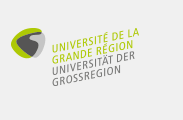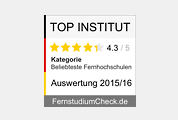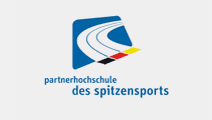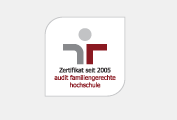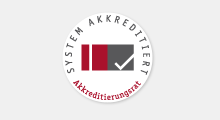Seminar Content
Selected topics in software engineering, especially
- Programming Techniques
- Testing, Inspection and Verification
- System modeling and Process modeling
- Project Management and Risk Management
Organization
Update: The presentations of the seminar papers are allocated in four blocks, according to the tables below.
Material
The Slides of the first meeting can be found here (updated 2013-04-22).
The LNCS Proceeding-Templates can be found here. The LaTeX-Template includes a source file llncs.doc, which is a tex-file with wrong ending.
Important: Students are advised to contact the supervisor of their topic of choice as soon as possible, to prevent conflicts at the introductory talk.
If the "Participant" field in the tables below contains an entry, it indicates that the corresponding topic has already been chosen and is no longer available to other students.
List of Topics for Bachelor Students
Required: Seminar paper of about 10 pages.
| Participant | Topic (description available via tooltip) | Supervisor | Supervisor's Email Address | Presentation |
|---|---|---|---|---|
| Fangsheng Gu | Information Design for UX | Andreas Maier | andreas.maier@iese.fraunhofer.de | Session 4 |
| Jörg Haberer | Process changing from traditional to agile development in industrial companies | Philipp Diebold | Philipp.Diebold@iese.fraunhofer.de | Session 3 |
| Robin Henß | Safe Haskell | Patrick Michel | p_michel@cs.uni-kl.de | Session 3 |
| Fabian Kreis | Functional integration testing of software-intensive technical systems | Thomas Bauer | thomas.bauer@iese.fraunhofer.de | Session 1 |
| Sebastian Schweizer | Efficient Software Development using data-driven Code Generators for Java | Malte Brunnlieb | m_brunnl@cs.uni-kl.de | Session 2 |
| Florian Tack | Medi SPICE – Adaption of ISO 15504 | Philipp Diebold | Philipp.Diebold@iese.fraunhofer.de | Session 3 |
| Patrick Blaß | Attack-and Attacker-modeling in complex systems | Michael Roth | michael.roth@informatik.uni-kl.de | Session 1 |
| Daniel Gentes | Games for Requirements Engineering | Anne Hess | Anne.Hess@iese.fraunhofer.de | Session 2 |
| Anna Maria Vollmer | Software in different Medical device classes | Philipp Diebold | Philipp.Diebold@iese.fraunhofer.de | Session 3 |
| Andreas Schläfer | Requirements Engineering for Games | Anne Hess | Anne.Hess@iese.fraunhofer.de | Session 2 |
| Anca Iacob | Beyond Smartphone and Tablet – User Interaction for Future Smart Devices | Steffen Hess | steffen.hess@iese.fraunhofer.de | Session 4 |
List of Topics for Diploma- and Master Students
Required: Seminar paper of about 15 pages.
| Participant | Topic (description available via tooltip) | Supervisor | Supervisor's Email Address | Presentation |
|---|---|---|---|---|
| Pierre Iraguha | BPMS-Evaluation | Özgür Ünalan | Oezguer.Uenalan@iese.fraunhofer.de | Session 1 |
| Patrik Feth | Automated Quality Assurance Techniques on Software Design Level | Thomas Bauer | thomas.bauer@iese.fraunhofer.de | Session 1 |
| Prakash Chamarthy | Measuring User Experience on the Basis of Expectations | Andreas Maier | andreas.maier@iese.fraunhofer.de | Session 4 |
| Gauss Piebeng | Combination of medical device ISO 62304 with agile development processes such as SCRUM or XP | Philipp Diebold | Philipp.Diebold@iese.fraunhofer.de | Session 3 |
| Stefania Barzan | To flick or not to flick: interaction design tendencies for business mobiles apps | Claudia Nass Bauer | claudia.nass@iese.fraunhofer.de | Session 4 |
| Fabian Stein | 1 App x 3 Devices = 3 Apps: interaction design of a mobile app for different devices? | Claudia Nass Bauer | claudia.nass@iese.fraunhofer.de | Session 4 |
| Kārlis Lukstiņš | Extracting Feature Models from Existing Software Products | Bo Zhang | bo.zhang@cs.uni-kl.de | Session 2 |
| Taufan Harsilo Ardhinata | Incremental Code Generation – Structural 2-way XML-Merge | Malte Brunnlieb | m_brunnl@cs.uni-kl.de | Session 2 |
| Srabasti Dhar | Software Testing Tools for Information Systems | Dr. Frank Elberzhager | frank.elberzhager@iese.fraunhofer.de | Session 1 |
Lecturers
Prof. Dr. Peter Liggesmeyer
Prof. Dr. Dr. h. c. Dieter Rombach
Prof. Dr. Arnd Poetzsch-Heffter
Schedule
-
Introductory talk:
18.04.2013
09:45 - 11:45
Room 42-105
All students have to attend the introductory talk even if they have already chosen a topic.
-
Final presentations:
Room 42-105
Session 1: 31.07.2013, 10:00 - 12:00
Session 2: 31.07.2013, 13:00 - 15:00
Session 3: 01.08.2013, 10:00 - 12:00
Session 4: 01.08.2013, 13:00 - 15:00
Attendance to all sessions is mandatory. The organizer has to be informed in case of scheduling conflicts.
- Structure/Table of Contents of seminar paper: 06.05.2013
- *Preliminary Version of seminar paper: 24.06.2013
- *Review of 2 other papers: 08.07.2013
- *Revised seminar paper: 22.07.2013
Organizer
- Walid Gannouni
- Alexander Prohaska
Room: 32-431
Phone: +49 (631) 205-5098
Office Hours: On appointment



![[logo of the department of CS]](/en/logos/logo_fbi_167x60.png)
